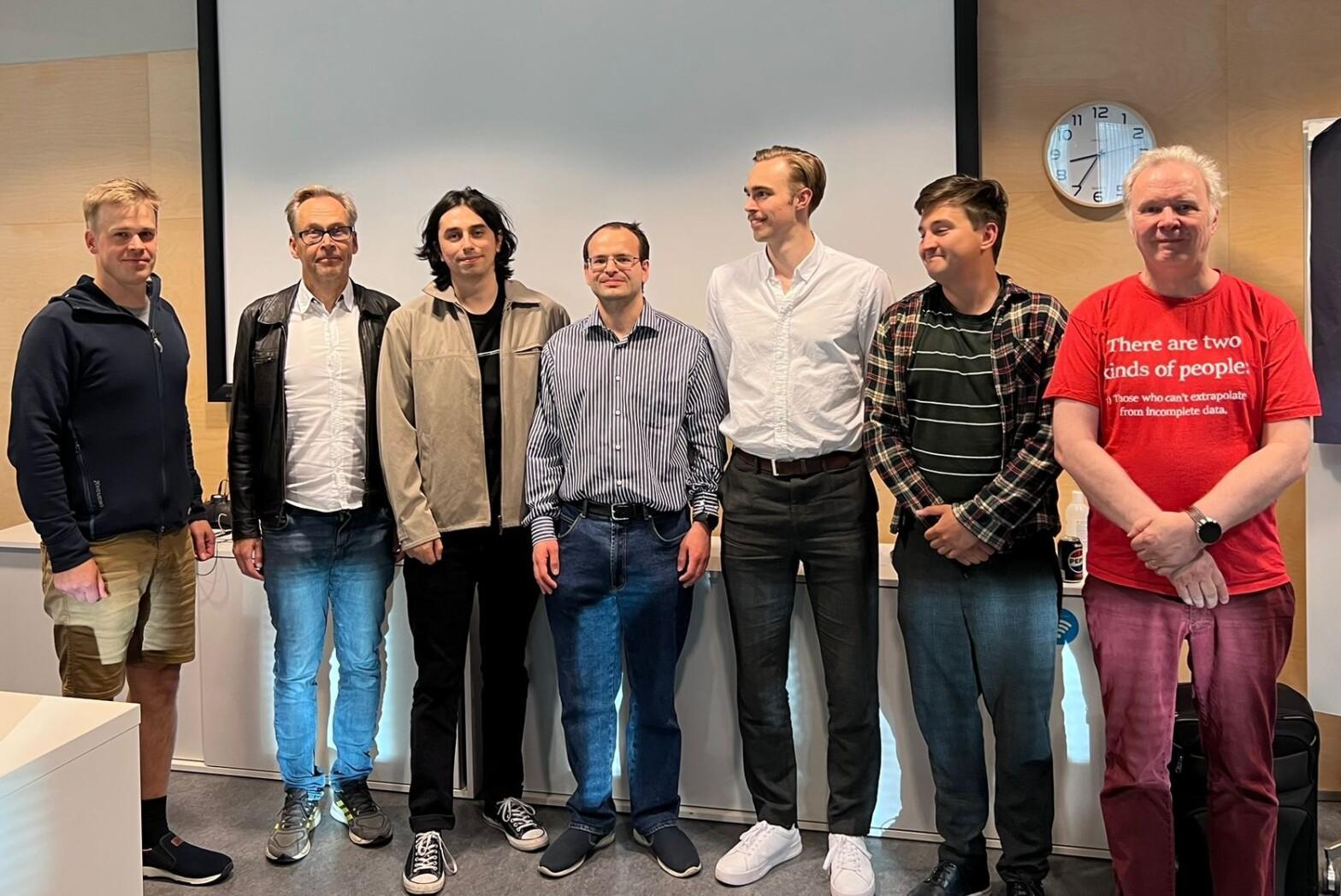Category Archives: Contributions
One of the most fun and rewarding activities the past two-three months has been working with the participants in the Helsinki Python hackathon on MariaDB Vector. Robert already blogged about the outcome and the award winners. Let me reflect a bit more on the entire process, as it has inspired us to do more of the same: Scaling out from Finland to other hackathons.
The goal: MariaDB Vector contributions
Our goal was to solicit contributions related to MariaDB Vector, but we didn’t have precise ideas about exactly what type of contributions or how we should arrange the hackathon.
…
Continue reading “Helsinki Python Hackathon – a role model for future MariaDB hackathons!”
MariaDB uses Clang’s memory, address, and undefined behavior sanitizers are used for identify coding flaws during the continuous development and testing process. MariaDB would like to share via an online event on how easy perform the same sanitizer checking.
The MemorySanitizer environment is particularly onerous to create. Because MariaDB use container based build and testing, we have an environment that can be re-used by anyone.
Our “Deep Dives” were once an internal skills transfer mechanism, however for the first time we’re making it available for anyone to join.
This particular deep dive will cover:
- Basics of MemorySanitizer, Address Santizer and Undefined Behavour Sanitizer;
…
Continue reading “Deep dive into Clang sanitizer testing with MariaDB”
The following post was written by Stefano Petrilli, who contributed UUIDv4 and UUIDv7 implementations to MariaDB. Thank you, Stefano!
The original version of the Universal Unique IDentifiers (UUID), which is now known as UUIDv1, made his first appearance in the 1980s. The most interesting guarantee that they provide is the generation of IDs that are always unique across space and time.
To comply with this promise, it uses a combination of three elements:
- The node, which is a field that identifies the machine that generated the UUID.
…
At MariaDB Day in February in Brussels, VP Engineering Vicențiu Ciurbaru delivered an inspiring presentation titled “Launch Your Open Source Career: First Steps in Contributing to MariaDB.”
In the spirit of the recent positive stats on new contributions to MariaDB, let me recap Vicentiu’s tips for anyone looking to make their first contribution.
Contributing to MariaDB is not only about writing code—it’s about joining a vibrant community where every contribution, big or small, drives innovation. We hope newcomers can see a tangible path to getting involved.
How to start contributing?
…
Scratch you own itch, and help others while at it!
Why do people contribute to Open Source projects?
The question is as old as Open Source and its predecessor Free Software: Why do people contribute? We re-asked the oldie-but-goodie, and got results that confirm the old adage about scratching your own itch.
Fixing work or personal needs
The most popular answer? Fixing work or personal needs. It got 44 %, nearly half the votes. You simply need to get the job done, and there is an Open Source project that almost does it already.
…
Every once in a while a truly inspiring contribution comes to us at MariaDB. Today’s timely contribution was from Sigma, and their inspiring contribution was in pull request 3937 which adds the AMEN statement for committing transactions. The need for harmonizing cultural norms with SQL standards is largely under explored aspect of engineering and here seems to be a good a place to start as any.
As described:
This pull request introduces a new statement, amen, which serves as an alternative to the traditional commit command in MariaDB. The motivation behind this change is to provide a more thematic and culturally resonant way to conclude transactions, reflecting the religious connotation of the name “MariaDB”.
…
Continue reading ““Amen” statement for committing transactions”
Here comes the Q4 2024 contributions report. The raw data which contains also statistics until today can be found on GitHub, here.
Server contributions
Just like last quarter, I’m going to start with a breakdown of all the organisations who have contributed to MariaDB Server during 2024.
| MariaDB Plc. | 31 | 1707 |
| MariaDB Foundation | 9 | 201 |
| Codership | 7 | 103 |
| Amazon | 12 | 51 |
| Independent | 19 | 48 |
| GSoC | 3 | 14 |
| Arch Linux | 1 | 6 |
| Alibaba | 1 | 4 |
| IONOS | 1 | 4 |
| Workato | 1 | 4 |
| Rakuten | 1 | 3 |
| OpenBSD | 1 | 2 |
| HardenedBSD | 1 | 2 |
| University of Sydney | 1 | 2 |
| Arm | 1 | 1 |
| ClearCode | 1 | 1 |
| FreeBSD | 1 | 1 |
| IBM | 1 | 1 |
| NetBSD | 1 | 1 |
| Chainguard | 1 | 1 |
| CloudLinux | 1 | 1 |
| TOTAL | 96 | 2158 |
MariaDB Server contributions for from 1st January 2024 – 31st December 2024
We can see some new names compared to the Q3 2024 report, with contributions from CloudLinux, NetBSD and Workato.
…
Continue reading “MariaDB Contribution Statistics, January 2025”
Another quarter year has gone by, and in the world of MariaDB, it is time for another contributions report. The raw data for this report can be found on GitHub, here.
Server contributions
Just like last quarter, I’m going to start with a breakdown of all the organisations who have contributed to MariaDB Server so far this year.
| MariaDB Plc | 29 | 1262 |
| MariaDB Foundation | 6 | 123 |
| Codership | 7 | 77 |
| Independent | 17 | 57 |
| Amazon | 12 | 50 |
| Arch Linux | 1 | 6 |
| GSoC | 3 | 5 |
| IONOS | 1 | 4 |
| Alibaba | 1 | 3 |
| Rakuten | 1 | 3 |
| HardenedBSD | 1 | 2 |
| OpenBSD | 1 | 2 |
| University of Sydney | 1 | 2 |
| Arm | 1 | 1 |
| Chainguard | 1 | 1 |
| ClearCode | 1 | 1 |
| FreeBSD | 1 | 1 |
| IBM | 1 | 1 |
MariaDB Server contributions for from 1st January 2024 – 8th October 2024
There have been some interesting things to note here.
…
Continue reading “MariaDB Contribution Statistics, October 2024”





